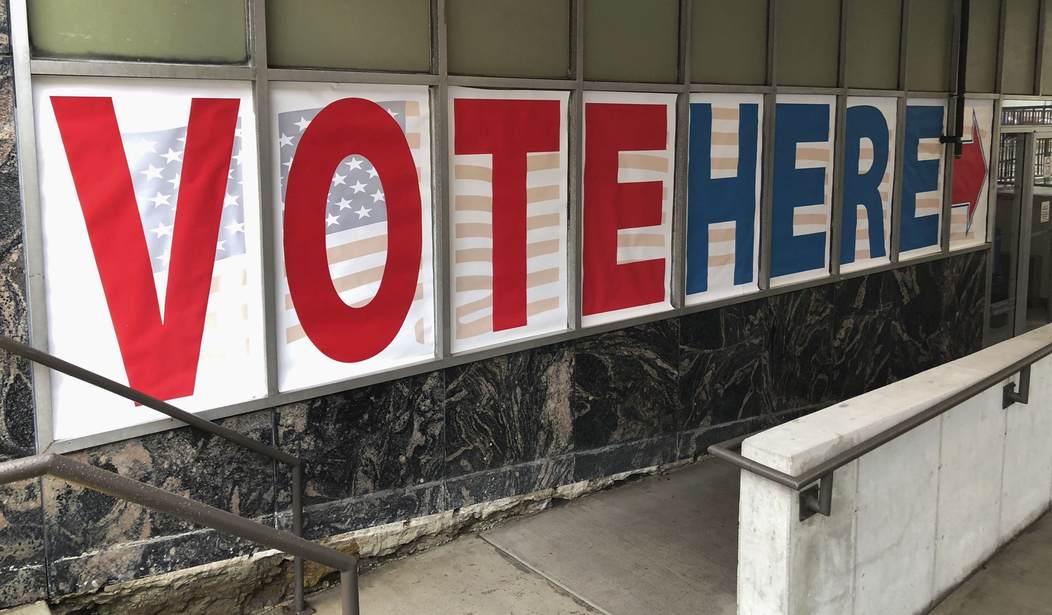Barbara Clark is the perfect example of a voter, whether Black, white, Hispanic or from any other ethnic group, who defies stereotypes. This defiance often leads to voters such as her being overlooked as people who could change not just the presidential election but also the majority in the Senate.
Clark is a Black female who has been a registered Democrat for almost all of her adult life and voted for former President Barack Obama twice.
"Dear, I didn't just vote for him," she said. "I was a community organizer for Barack Obama for the group ACORN."
The acronym stands for the Association of Community Organizations for Reform Now, a 501(c)(4) left-wing voter registration organization that closed its doors in 2010.
Clark, 67, admitted she did not know politics all that well before getting involved with Obama.
"I knew you voted. But really, studying and doing all of that, I didn't know. I just took the slate card and voted Democrat," she said.
She was inspired by Obama's candidacy, though, and stepped up her game and got involved. However, Clark said once he was elected and governing, she found herself wondering why she was not seeing improvements in her community and in her life in the way he promised.
"After we got Obama in the first time, and nothing happened, nothing changed, I said, whoa, what's going on? And the local Democrats told me, 'They won't let him,'" Clark explained.
"My answer to them was I said, well, he got to step up and say, I'm the president. But nothing changed in our community," she added.
Clark said she grew up in an all-Black neighborhood with families, such as hers, that made her do her chores before she was allowed to play in the summer. Once set free, though, "You went to the park and swimming," she said. "You played with the neighbors. You could play all day outside. We grew up, a pool was right across the street from us."
Recommended
"And people looked out after us," she said of her childhood, which she said was idyllic. "They be like, y'all go on home. Time to go home. Because the park didn't close back then until 9 o'clock, and we played softball. We went swimming. Every day, we had things to do. And there was no computers and phone, iPhones and all that. And we had fun."
However, Clark's political worldview changed after her disappointment with Obama and after getting sober.
"For most of my adult life, for 23 years, I was on drugs. So I wasn't paying attention. I would see Democrats come around. I really didn't pay attention to (the reality that) they only came around for election time. But when I got sober, my head was clear," she said.
Clark said she soon realized the promises of better schools, jobs and a great economy turned out to be unfilled.
"It stayed the same," she said. "It always stayed the same."
The first time I interviewed Clark, she said she did not volunteer for Hillary Clinton, but she still voted for her in 2016, the last time she voted for a Democrat. By 2018, Clark had started to get involved with the Republican Party, and in 2020, she worked for an outside group to get then-President Donald Trump reelected in her home state of Ohio.
Clark is not working for Trump anymore, but "Miss Barbara," as she is affectionately known in Columbus, Ohio, spends her days talking to other Black neighbors about why she thinks he is a better choice for their lives.
"See our community, what we are concerned about, if we can buy a loaf of bread and some gasoline to get to work," she said of the economic despair that is still hurting working families. "And I mean, gas was so high. And you just couldn't make it. And these last four years, I was like, oh my God. You go to the store with a hundred dollars, and you'll come out with literally one bag, maybe a bag and a half."
Democrats saw a migration of Southern whites to the GOP for 50 years after WWII. Will 2024 be the start of the next big shift? Several polls are indicating that Trump is doing surprisingly well among Black and Hispanic voters.
Ohio GOP consultant David Myhal has been looking at the numbers and explained, "The Democrat Party depends on their voters to disregard results and policies and only vote identity. I believe voters are smarter than that; I think they are starting to realize the Democrats think they are that stupid."
The GOP has been labeled a party for rich white men and the Democrats as the party of diversity. On the first point, some disagree on the facts.
"Most really rich people are Democrats unless they are influenced by a strong faith," said Myhal.
When you track political giving during the Trump era, you will find this to be true. Boardroom executives and lawyers were very generous fundraisers for Clinton, President Joe Biden, and now Vice President Kamala Harris.
A new denominator may be on the horizon that supersedes identity politics: economics and a Midwestern common sense.
"Farmers, evangelicals, Hispanics and Blacks can all agree on one thing: A cow is a girl, a bull is a boy, and I don't want a politician deciding if I can drink their milk or eat a hamburger, and I better be able to afford to make the choice," said Myhal.
Clark said she was appalled when Obama admonished Black men and called them "the brothers" for not stepping up to turn out for Harris. She was equally appalled when Harris put out a laundry list of promises called "Opportunity Agenda for Black Men" that she wanted to use to guarantee the Black male vote. The agenda included a million fully forgivable loans of up to $20,000 for Black business owners to start businesses, a national initiative to focus on Black men's disparate health outcomes, legalizing recreational marijuana and creating opportunities for Black entrepreneurs in this budding industry.
"Don't tell me, don't tell me. She's going to give us some dope. Because that's what Black people want," Clark said sarcastically.
"See that right there. If that didn't wake Black people up, let me slap them to wake them up. Because we have been so conditioned (to vote) Democrat no matter what, because they are going to give us stuff," she said.
Youngstown State University professor Paul Sracic explained that we are seeing more and more signs indicating that the country is in the midst of a significant realignment.
"What we saw in 2016 may well be looked back on as what the political scientist V.O. Key called a 'critical election,' similar to what happened in 1928 when Catholics joined what became the New Deal coalition," he said.
Realignments are often candidate driven. In 1928, Democrats nominated a Catholic, Al Smith, to lead their ticket, but Catholics were already moving to the Democratic Party.
It was the same thing with Trump and working-class voters in 2016, said Sracic.
"These voters were already moving to the Republican Party. What is really interesting is whether the movement continues post-Trump and whether we can stop assuming that all of this Republican working-class support is limited to white voters," he explained.
If that happens, this might look more like the realignment that took place in 1896, when Republicans managed to attract voters from different social classes to become the dominant party well into the next century.
For now, Clark is spending her time talking to people in Columbus' city neighborhoods, particularly where people love to gather to chew the fat and talk to her about how important their vote is.
"I make it a point to visit barbershops. And oh, the conversations. When I first supported Trump, they were telling me, oh Barbara, what's wrong with you? You crazy. And, girl, some people stopped speaking to me," she said, laughing.
"But now, I was amazed. Just Monday, I went into the barbershop, and they were talking. And oh my God, the barbers was really supporting Trump. I was like, oh my God. I almost cried because they have woke up."

























Join the conversation as a VIP Member